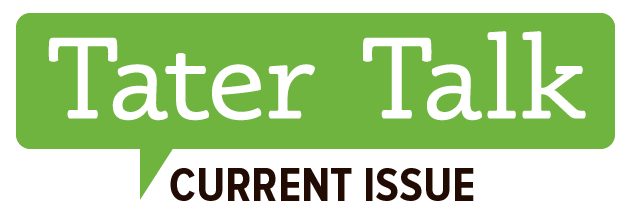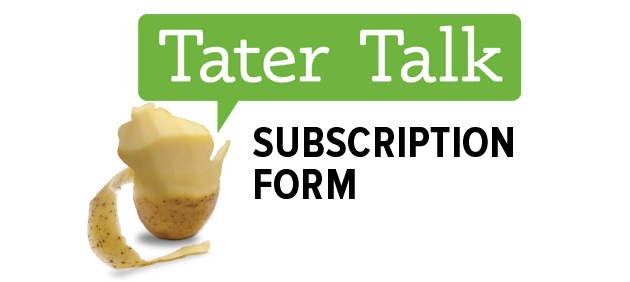The Unexpected Department of Labor Audit – What To Do When The Department Of Labor Comes Knocking
By Attorney Stephen A. DiTullio & Attorney Jordan Rohlfing
DeWitt Ross & Stevens S.C.
Knock, knock, knock! A Department of Labor (“DOL”) Investigator or team of investigators shows up at your farm and informs you that they are there to audit your records and/or investigate the workplace. The DOL has the authority to audit and investigate based on a wide variety of laws under its jurisdiction. It is important for agricultural employers to have a plan in place for how to deal with DOL Investigators when they come knocking. This article will discuss the basics of how to approach a DOL audit/investigation.
DOL audits/investigations may encompass several federal laws under the DOL’s jurisdiction, such as the Fair Labor Standards Act, the Occupational Safety and Health Act, the Immigration and Nationality Act, and the Migrant and Seasonal Agricultural Worker Protection Act, H-2A program, among many others. DOL investigators may arrange a scheduled visit or may arrive unannounced. There are several steps, outlined below, that agricultural employers can take to prepare for and deal with an unscheduled audit/investigation.
PRE-INVESTIGATION STEPS
- Make Compliance A Priority. Agricultural employers that make legal compliance a priority well before the DOL comes knocking typically fare better during DOL audits. These employers regularly conduct self-audits to make sure that they are complying with federal laws and that employee records are maintained in an organized fashion. We recommend that employers conduct these periodic self-audits to help ensure that they are complying with federal law. Employers should make necessary changes based on the results of the self-audit(s).
- Choose A Company Representative. It is important for employers to have a designated company representative to act as the go-to person during a DOL audit or investigation. This person will be the liaison between the company and the investigator. The designated company representative should have a strong working knowledge of the DOL audit and/or investigation process, the company’s recordkeeping, payroll records, and other records. The company representative will be the main person communicating with the DOL Investigator, so we recommend choosing someone with an even-temperament and diplomatic disposition.
AUDIT/INVESTIGATION PROCESS
- Make The Investigator Comfortable. When the DOL Investigator arrives on-site, the designated company representative and management should be notified immediately. It is also generally recommended to alert the company’s legal counsel that an audit or investigation has begun. We typically recommend arranging for the DOL Investigator to be set up in a conference room or office near the front office, if possible – and not in close proximity to the location of most of your workers (whether it is a barn, factory floor, or other location). You want to be in control of what the DOL Investigator is seeing and with whom he or she is coming into contact. Please note that when the DOL Investigator arrives on-site, you have the right to request his or her credentials.
- Pre-Investigation Meeting. The designated company representative should request a pre-investigation meeting. During the pre-investigation meeting, the company representative should find out what the DOL would like to inspect and what the DOL’s objectives are for the visit. Take notes during the pre-investigation meeting and during the entire investigation process. Make sure that at least two company representatives are present so that one can take notes, while the other listens carefully to the investigator.
- Limit The Investigation, If Possible. The company representative should attempt to limit the scope of the investigation consistent with the DOL’s statements during the pre-investigation meeting, if possible. If the DOL asks for certain records, only turn over the records that are requested. For example, if the DOL asks for I-9 Forms, do not hand over entire employee files. Instead, just provide the investigator the I-9s. Answer questions that are asked, but do not volunteer information. Check with legal counsel if there is a question regarding what must be disclosed.
- Provide Copies Of Requested Information. The company has a legal duty to provide requested information within the DOL’s jurisdiction. Noncompliance during an investigation could lead to significant legal problems later in the process. If the DOL Investigator wants to leave the premises with certain records, be sure to provide the DOL Investigator with copies. Do not let the Investigator leave with originals. It is important to keep detailed records of every document that the DOL reviews and/or takes off-site. This information can be helpful during the post-investigation process.
- Tours And Employee Interviews. The DOL has the authority to ask for a tour of fields, housing, field sanitation facilities, and vehicles, among other things. The DOL also has the authority to interview employees and/or managerial personnel. The DOL is allowed to interview employees; management personnel do not have a right to be present during interviews with employees. A representative of management has a right to be present if the DOL requests to interview management personnel. Furthermore, if a photo or video is taken by the DOL investigator, you should immediately photograph or videotape the same precise area or objects. This can occur in the investigator’s presence.
- Closing Conference. A closing conference is required after the DOL Investigator has finished reviewing the requested information and completing any other investigation of the premises and employee interviews. Make sure the DOL Investigator knows to whom he or she should send any follow-up questions or violations/citations. Use this time to ask questions and correct any obvious mistakes of fact. However, be careful not to admit to any violations. It is extremely important to take very careful notes of everything discussed during the closing conference, so it is recommended (just as in the pre-investigation meeting) that two company representatives by present – one to listen and one to take notes.
POST-INVESTIGATION PROCESS
- Address Violations/Citations. The company should work to address any violations/citations that are issued. There are many strategies and opportunities during which a company can attempt to negotiate the scope of the violations and/or the amount of any fines assessed. This could include appealing any issued violations/citations or remedying any issues that were identified during the investigation. If you need assistance dealing with a violation/citation, we recommend that you reach out to your legal counsel.
- Remedy Problems and Abatements. If violations were discovered during the investigation process, the company will be required to address the issues and/or abate the violations by a certain date so those same issues do not crop up again in the future.
The DOL investigation process can be very stressful. We recommend taking it one step at a time. A well-prepared company representative can make a meaningful difference if the DOL shows up unannounced. Please keep in mind that the Department of Labor maintains a robust website with various tools for employers. If you have any questions regarding DOL investigations, do not hesitate to contact Steve DiTullio or Jordan Rohlfing, or your attorney.
About the Authors
Jordan Rohlfing is an associate in DeWitt’s Labor & Employment Relations and Litigation practice groups. Contact Jordan by email or phone 608.283.5509.
Steve DiTullio is a partner practicing out of our Madison office. He is a member of the Labor & Employment Relations and Litigation practice groups. Contact Steve by email or by phone at 608.252.9362.


